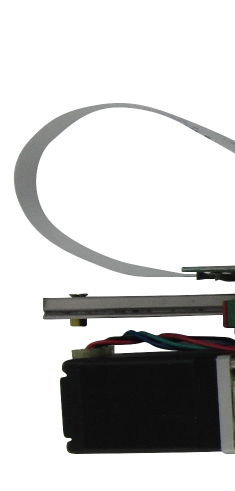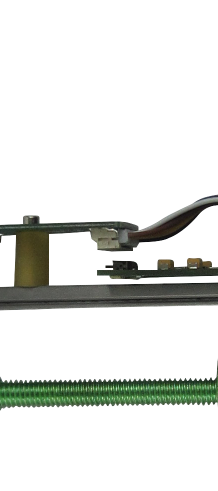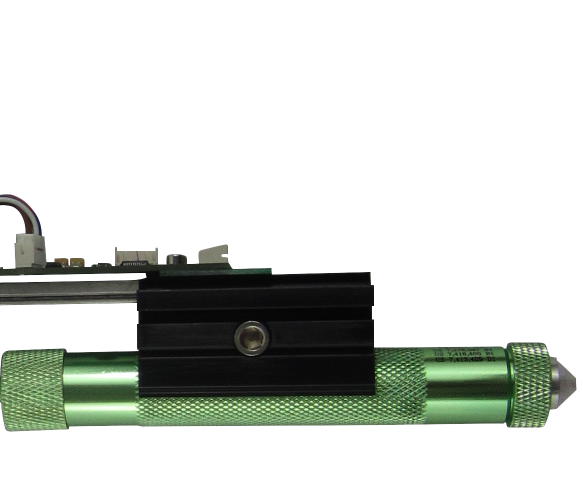Difference between revisions of "Pulses per Microliter"
(→EMO and VOL) |
(→EMO and VOL) |
||
| Line 3: | Line 3: | ||
== EMO and VOL == | == EMO and VOL == | ||
| − | The EMO and VOL heads | + | The EMO and VOL heads each have: |
| − | + | A. A 1.8° stepping motor, running in 1/16th microstep mode; | |
| + | B. A 27:1 planetary gear; | ||
| + | C. A 1:1 drive screw coupling; | ||
| + | D. A drive screw with a pitch of 18 threads per inch, or 1.411 thread per mm; | ||
| + | E. And a reservoir with a 17 mm diameter, or 227 mm<sup>2</sup> cross section. | ||
| − | + | The table below explains how a certain number of pulses (or microsteps) on the motor will generate a certain volume displacement in the reservoir - the pulses/µL number that we need to control the material flow. | |
| − | |||
| − | |||
| − | |||
| − | |||
| − | |||
| − | The | ||
| − | |||
| − | |||
| − | |||
| − | |||
| − | |||
| − | |||
| − | |||
| − | |||
| − | |||
| − | |||
{| border="1" class="wikitable" style="text-align: center;" cellpadding="0" | {| border="1" class="wikitable" style="text-align: center;" cellpadding="0" | ||
Revision as of 17:21, 27 July 2020
This is to explain the various gearing on our different heads.
EMO and VOL
The EMO and VOL heads each have:
A. A 1.8° stepping motor, running in 1/16th microstep mode; B. A 27:1 planetary gear; C. A 1:1 drive screw coupling; D. A drive screw with a pitch of 18 threads per inch, or 1.411 thread per mm; E. And a reservoir with a 17 mm diameter, or 227 mm2 cross section.
The table below explains how a certain number of pulses (or microsteps) on the motor will generate a certain volume displacement in the reservoir - the pulses/µL number that we need to control the material flow.




